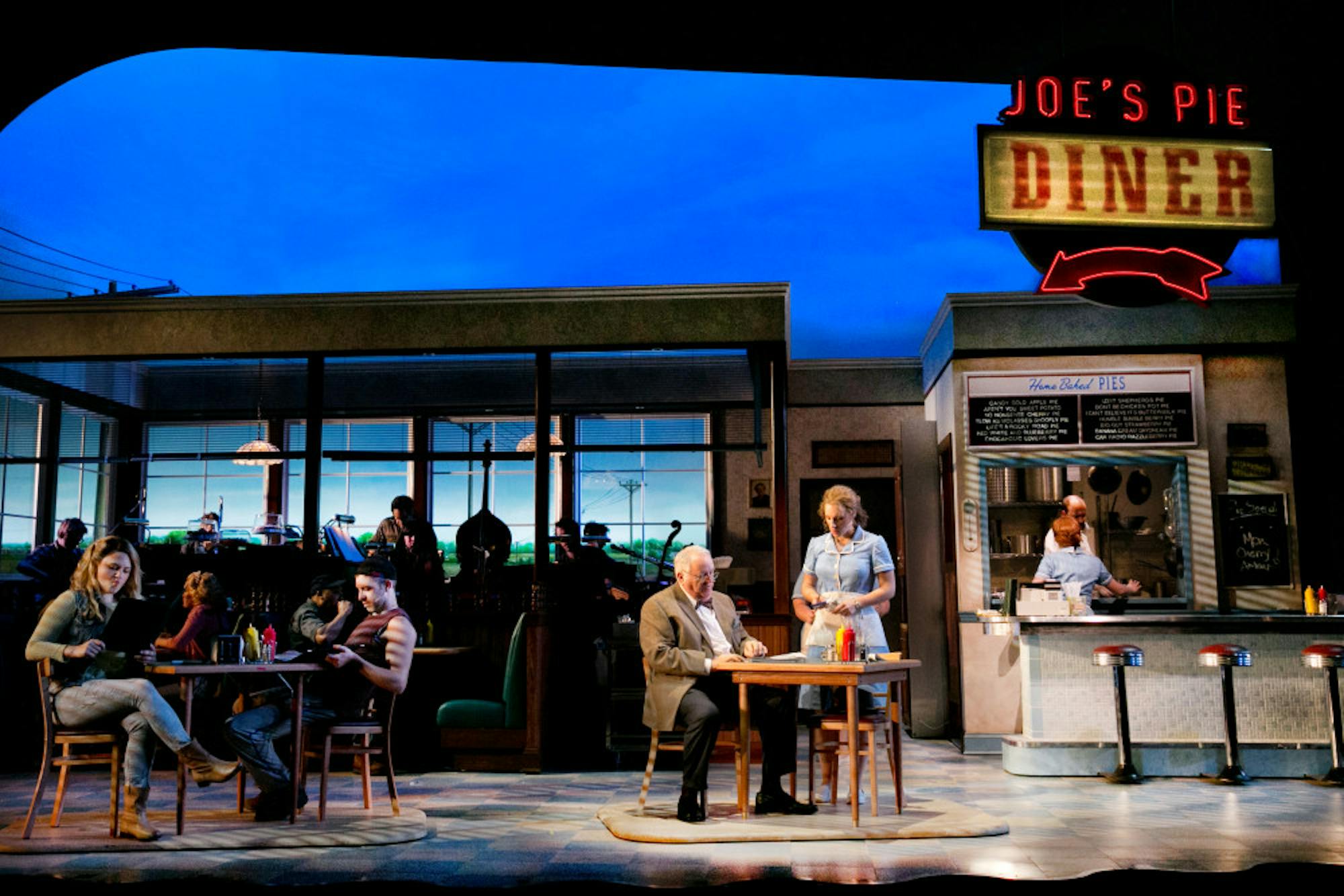When director Adrienne Shelly's pie-in-the-sky film success “Waitress” was released in 2007, the first thought on people’s minds was probably not, “Let’s make this a musical.” Nevertheless, eight years later, that is exactly what American Repertory Theater (A.R.T.) has done, and in this incarnation, “Waitress” may not be as universally appealing.
The movie was widely acknowledged as a success because of the way it infused standard rom-com tropes with levels of wit and whimsy with originality that many similar offerings lack. As a result, it drew in audiences that normally would have poo-pooed it because of its genre. Snobs and non-snobs alike agreed that “Waitress” was a pretty good movie.
The musical adaptation of “Waitress” has a lot of the original's strong qualities. Whole chunks of the film are performed verbatim onstage, and sometimes this works; there are memorable lines from the movie that will bring smiles to the faces of anyone who has seen it before. Other times, however, this approach is less effective, such as when Jenna (Jessie Mueller), the main character, has an epiphany while looking at her baby for the first time. Although the scene is still beautiful, the light and sound designers, as well as the actors under Diane Paulus’ direction, could not recreate the movie's climactic moment with the same emotional intensity. To be fair, Paulus and company do not have the same options that Shelly had -- namely, the ability to manipulate camera angles -- but the moment still feels rushed and unsatisfying.
One of the more interesting changes made to the story is the increase in stage time for Earl (Joe Tippett), Jenna’s abusive, misogynistic, deadbeat husband. The A.R.T. production sheds light on the early days of Jenna and Earl’s relationship: how Jenna had been alone and scared and how Earl had been the wrong guy at the right time. It is hard not to feel bad for Tippett, whose performance as Earl makes him the most disliked person in the room. Dawn (Jeanna de Waal), one of Jenna’s coworkers at the pie shop, and Ogie (Jeremy Morse), her indefatigable suitor, also get more attention in this production. Their comedic bit is totally revamped, but while it is utterly hilarious, it has nothing to do with the plot.
The vocal performances are, on the whole, quite good. Mueller steals the show when she belts, and the score by Sara Bareilles allows the former plenty of opportunities to do so. Drew Gehling, who plays the love interest, Dr. Pomatter, hits notes that would make Michael Jackson jealous, though his acting is not as impressive.
One of the hazards of translating “Waitress” to the stage is that this new version will inevitably be compared to the original. One of the unavoidable comparisons here is that Gehling is not nearly as compelling and charismatic as Nathan Fillion was as Dr. Pomatter in the movie. While deft with a zinger, Gehling lacks the effortless appeal of his predecessor. When this reviewer saw the musical, Charity Angél Dawson was standing in for Keala Settle, who normally plays Becky, Jenna’s other coworker at the pie shop. Although Dawson's acting felt somewhat affected, her breakout solo song, “I Didn’t Plan It,” is one of the standout numbers on the score, and she owns the stage when she sings it.
The two strongest songs next to "I Didn't Plan It" are “Opening Up” and “Bad Idea.” Of all the songs in the production, these three are the most like conventional showtunes. These are the songs that get the audience excited about being at the theater and about the characters in front of them. The rest of the music is clearly Bareilles’ brand of folk rock-pop, which should please her fans, but likely not fans of theater. Many of the songs tend to jump into the action at moments that can feel contrived, and the homogeneity of the score sometimes obstructs the flow of the plot; the music fails to evolve with the story. The big numbers, though strategically placed and exciting in the moment, will probably not get stuck in anyone’s head for too long.
There is something meticulous about the structure of “Waitress.” Everything -- the arrival of the love interest, the complications, the moral quandaries, the resolution, the music -- happens right when it needs to happen. In the movie, this all happens smoothly, but it feels forced in the musical. The stage adaptation of “Waitress” is a well-constructed piece of theater but one that is missing the apparent effortlessness of the original. Some people will feel the machinery at work, while others will just enjoy the spectacle in front of them -- the experience audience members have will depend on what they want out of the show.
“Waitress” is currently playing at the American Repertory Theater in Cambridge through Sept. 27. Tickets are $25 for students.
A.R.T. revamps old recipe with production of 'Waitress'

"Waitress" at A.R.T. brings the cult movie to the mainstream theater scene.
Summary
Rom-com lovers will like this musical, but fans of the original movie may be disappointed by what gets lost in translation.
3 Stars





